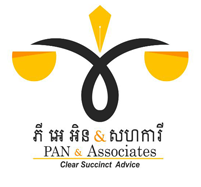Civil litigation in Cambodia is primarily governed by the Civil Code of Cambodia (2007) and the Code of Civil Procedure of Cambodia (2006). These comprehensive laws outline the rights, duties, and procedures involved in resolving civil disputes through the judicial system.
Initiation of a Lawsuit
- To file a civil lawsuit in Cambodia, the plaintiff must submit a written complaint to the appropriate court. The complaint should include specific details about the parties involved, the nature of the dispute, the legal grounds for the claim, and the desired relief or remedy.
- Jurisdiction and Registration: The complaint must be filed with the court that has jurisdiction over the case, typically determined by the defendant’s location or where the legal issue occurred.
- Once the complaint is filed, the court will register the case and assign a unique case number for tracking purposes throughout the litigation process.
Service of Process
- After a complaint is filed in a Cambodian civil lawsuit, the court issues a summons or invitations. This summons or invitations must be served to the defendant along with a copy of the complaint, ensuring that the defendant is aware of the lawsuit and has the opportunity to respond.
- Proof of Service: The plaintiff must provide evidence that the defendant has been properly served according to the procedures outlined in the Code of Civil Procedure. This proof of service is essential for the court to proceed with the case.
Defendant’s Response
- Within a specified period (typically 20 days), the defendant in a Cambodian civil lawsuit must file a response known as an “answer.” This answer should address each of the plaintiff’s allegations, either admitting, denying, or stating insufficient knowledge.
- Counterclaims: If the defendant believes they have a claim against the plaintiff, they may file a counterclaim. This counterclaim will be considered as part of the same litigation, allowing both parties to present their arguments simultaneously.
Preliminary Procedures
- Before the trial begins, the court may hold a pre-trial conference to clarify the issues, establish a timeline, and explore potential settlement options.
- Evidence Submission: Both parties must submit relevant evidence to support their claims or defenses. This evidence can include documents, witness statements, and other materials. The admissibility and exchange of evidence are governed by the Code of Civil Procedure.
Trial
The trial phase in a Cambodian civil lawsuit involves the following steps:
- Opening Statements: Both parties present their opening statements to the judge, outlining their case.
- Presentation of Evidence: The plaintiff and defendant present their evidence, including witness testimony, documents, and expert opinions. Cross-examination is allowed.
- Closing Arguments: After all evidence is presented, both parties deliver their closing arguments, summarizing their key points and urging the court to rule in their favor.
Judgment
- Deliberation: The judge carefully considers the evidence and legal arguments presented during the trial.
- Issuance of Judgment: The court issues a formal judgment, resolving the dispute by either granting or denying the plaintiff’s claims. The judgment will also address any counterclaims.
- Notification: Both parties are notified of the court’s decision. If a party disagrees with the judgment, they may have the right to appeal.
Appeals Process
- Filing an Appeal: If a party is dissatisfied with a court’s judgment, they may file an appeal with a higher court within a specified time frame, typically 30 days.
- Appellate Review: The appellate court examines the lower court’s decision for errors in law or procedure. In certain cases, the appellate court may also review the facts of the case.
- Appellate Judgment: The appellate court can affirm, modify, or reverse the lower court’s judgment. The decision of the appellate court is generally final, unless further appeal to the Supreme Court is permitted.
Enforcement of Judgment
- Execution of Judgment: If the judgment is favorable to the plaintiff and no appeal is filed, the court will issue an order to enforce the judgment. This may involve the seizure of assets, garnishment of wages, or other enforcement measures.
- Settlement or Compliance: The defendant may also choose to comply with the judgment voluntarily, avoiding the need for enforcement actions.
Key Considerations in Civil Litigation
- Legal Representation: While self-representation is possible, it’s strongly recommended to seek legal advice due to the complexities of civil litigation procedures.
- Timeliness: Strict deadlines apply at various stages of the litigation process. Failing to meet these deadlines can result in the dismissal of the case or the loss of rights.
- Settlement Opportunities: Consider exploring settlement options throughout the litigation process to potentially save time and reduce costs.
- Costs and Fees: The losing party may be ordered to pay court costs and the winning party’s legal fees. It’s essential to assess the financial implications of pursuing litigation.
Conclusion
The civil litigation process in Cambodia is structured to ensure fair and equitable resolution of disputes. By understanding the procedures outlined in the Civil Code and the Code of Civil Procedure, parties can navigate the legal system effectively.
Whether you are initiating a lawsuit or defending against one, it is crucial to seek legal advice to ensure your rights are protected throughout the litigation process.
